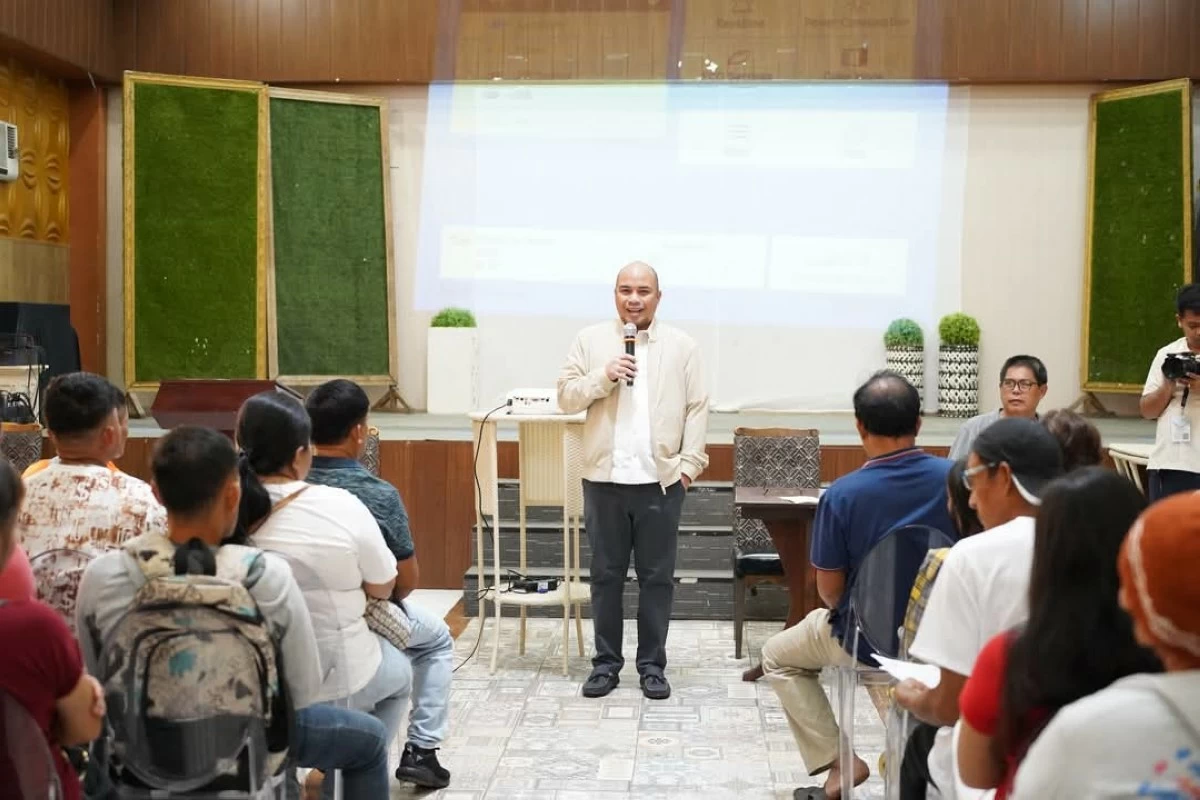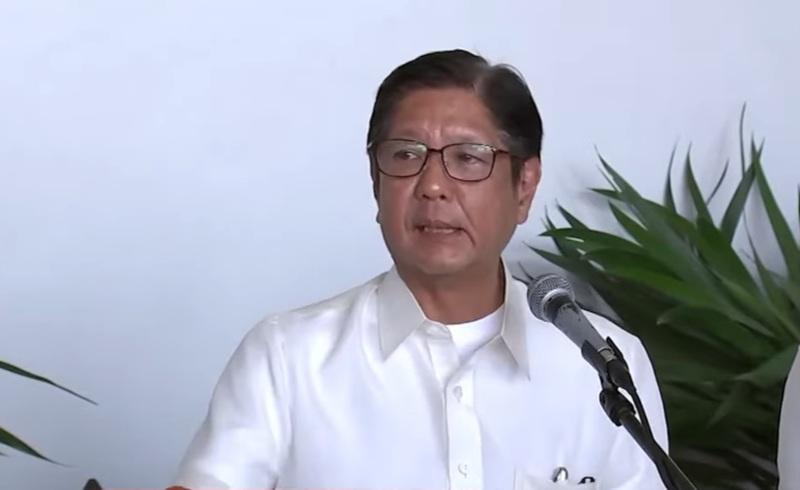Did Miley Cyrus Go Too Far With JoJo Siwa Joke?

Miley Cyrus Sparks Controversy with Comments on JoJo Siwa’s Relationship
The intersection of celebrity culture and personal identity can often lead to misunderstandings and controversies, especially when it comes to sexual orientation. Recently, Miley Cyrus found herself at the center of a heated discussion following comments she made about fellow entertainer JoJo Siwa's romantic life during a panel at the Dreamland Pride Festival in New York. While some fans found her remarks humorous, others labeled them as 'biphobic,' igniting a debate on the complexities of bisexuality and the support for LGBTQ+ identities.
The Context: JoJo Siwa’s Relationship Journey
JoJo Siwa, a 22-year-old social media personality and singer, has openly identified as queer. Her most recent relationship with Chris Hughes, a male housemate from Celebrity Big Brother, has drawn attention, particularly given her previous relationship with Kath Ebbs. The timing of this new romance coincided with Pride Month, a time when many in the LGBTQ+ community celebrate their identities and advocate for equality.
JoJo's transition from a same-sex relationship to dating a cisgender male has raised eyebrows and led to conversations about bisexuality and its acceptance within the community. This shift has also prompted some fans and observers to question JoJo's identity, which is a common issue many bisexual individuals face.
Miley Cyrus's Comments: A Breakdown
During the panel discussion, Miley Cyrus remarked, “Enjoy coming out of the closet if this Pride is the time for you,” followed by a light-hearted comment about bringing JoJo back out. While Miley intended these remarks to be playful, they were quickly interpreted by some as undermining JoJo's queer identity.
Critics pointed out that jokes made about someone's sexual orientation can reinforce harmful stereotypes and contribute to biphobia, particularly when they come from someone who identifies as part of the LGBTQ+ community. Miley herself has identified as pansexual, a term that shares similarities with bisexuality, meaning attraction to individuals regardless of gender.
The Biphobia Debate: Understanding the Reactions
The backlash against Miley's comments highlights a significant issue within the LGBTQ+ community: biphobia. This term refers to the prejudice or discrimination against bisexual individuals, often manifesting as invalidation of their identities or relationships. Critiques of Miley's remarks emphasized that, particularly during Pride, it is crucial to be sensitive to how jokes can impact those who are already facing scrutiny for their sexual identities.
- Public Perception: Many fans expressed discomfort, noting that jokes about someone exploring their sexuality can be harmful.
- Friendship vs. Public Discourse: While Miley and JoJo are reportedly friends, critics argued that friendship does not exempt one from being responsible for the words they choose.
- Community Dynamics: Some fans pointed out that biphobia often comes from within the LGBTQ+ community itself, complicating the acceptance of bisexual individuals, especially when they date someone of a different gender.
Support and Defense: A Divided Community
Despite the backlash, there were voices defending Miley Cyrus, arguing that her comments were intended as light-hearted banter among friends. Fans highlighted the close relationship between Miley and JoJo, stating that the jest was not meant to belittle JoJo's identity but to celebrate their friendship.
Supporters also pointed to the importance of humor in fostering community spirit. They argued that Miley's intent was not malicious and that it is essential to maintain a sense of camaraderie during Pride Month.
JoJo Siwa's Journey of Self-Discovery
In the midst of the controversy, JoJo Siwa has been vocal about her journey of self-discovery. During her time in the Big Brother house, she expressed feelings of being “so queer,” demonstrating her evolving understanding of her identity. This revelation is significant as it showcases the fluidity of sexual orientation and the complexities involved in labeling oneself.
JoJo's statement, “I think being here I’ve realized: ‘Oh, I’m not a lesbian, I’m queer,’” indicates a deeper exploration of her identity, one that challenges the binary views often held by society. This perspective is vital, as it allows for a broader understanding of the spectrum of sexual orientation.
Implications of Celebrity Commentary on Identity
The incident with Miley Cyrus and JoJo Siwa serves as a reminder of the powerful role celebrities play in shaping public discourse around sexual orientation. When a public figure makes comments about someone else's identity, it can influence perceptions and attitudes within the broader community. This is particularly relevant for young fans who look up to these celebrities as role models.
As individuals navigate their own identities, the language used in popular culture can either support or hinder their journeys. Therefore, it's essential for celebrities to be mindful of how their words impact their audiences, particularly during such a significant time as Pride Month.
The Broader Conversation: Biphobia and Its Effects
Biphobia is a real concern that affects many individuals within the LGBTQ+ community. It can lead to feelings of isolation and invalidation, particularly for those who find themselves in relationships that are perceived as “straight-passing.” Stereotypes about bisexual individuals often suggest they are confused or indecisive, which can further alienate them from their peers.
JoJo Siwa's experience is a reflection of the challenges faced by many bisexual individuals, particularly women, who may feel pressured to conform to societal expectations regarding their relationships. The scrutiny that biphobia brings can be damaging, leading to mental health issues and a reduced sense of belonging within the community.
Moving Forward: The Role of Allies
As conversations around biphobia and LGBTQ+ identities continue to evolve, it is crucial for allies within and outside the community to engage constructively. Understanding the nuances of bisexuality, supporting individuals in their exploration of identity, and promoting inclusive language can all contribute to a more accepting environment.
In addition, promoting open discussions about the complexities of sexual orientation can help dispel misconceptions and foster a more inclusive community. Encouraging conversations that embrace diverse experiences can lead to a greater understanding of the fluidity of identity.
As we continue to navigate these discussions, it’s essential to remember the significance of empathy and respect. Every individual's journey is unique, and supporting them in their exploration can make a meaningful difference.
Conclusion: Reflecting on Identity and Acceptance
The controversy surrounding Miley Cyrus's comments about JoJo Siwa underscores the delicate nature of discussing sexual orientation and identity within the LGBTQ+ community. As society grapples with the complexities of identity, it becomes increasingly important to foster understanding and acceptance among all individuals.
While humor can often serve as a bridge in discussions about identity, it must be balanced with care and sensitivity. Celebrating Pride Month requires a commitment to recognizing and respecting the diverse experiences within the LGBTQ+ community. It is a time to uplift voices, support one another, and advocate for a world where everyone can express their identity freely.
FAQs
What is biphobia, and how does it affect individuals?
Biphobia refers to the prejudice or discrimination against bisexual individuals. It often manifests as invalidation of their identities or relationships, leading to feelings of isolation and diminished self-worth.
How can celebrities impact perceptions of LGBTQ+ identities?
Celebrities wield significant influence over public discourse. Their comments can shape attitudes and beliefs about sexual orientation, making it essential for them to be mindful of their language and actions.
What should allies do to support the LGBTQ+ community?
Allies can support the LGBTQ+ community by educating themselves about diverse identities, advocating for inclusive practices, and promoting open conversations that respect individuals' experiences.
As society progresses, how can we better support those exploring their identities while fostering an inclusive environment? #Pride #LGBTQ #Biphobia
Published: 2025-06-09 22:29:37 | Category: Entertainment



